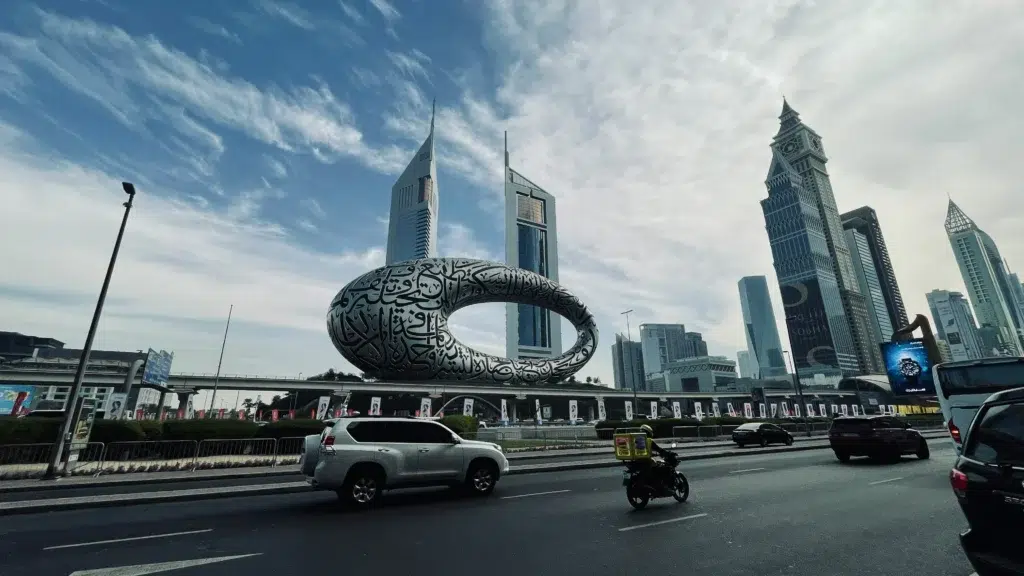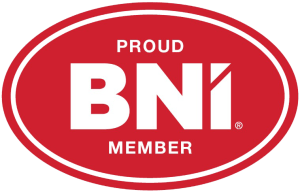Dubai Visa Work Permit: Step-by-Step Guide for Foreign Professionals in 2025
Rajinder Singh Nagiyal
September 29, 2025
Dubai Visa Work Permit: Step-by-Step Guide for Foreign Professionals in 2025

Dubai is known for its economic magnetism. Many people want to work there because the city offers great chances for jobs and business. The high demand for international talent means companies in Dubai are always looking for skilled workers from around the world. This makes Dubai a popular place for people who want to build their careers.
The city also has business-friendly policies that make it easier for companies to grow and hire workers. On top of that, the expat lifestyle in Dubai is exciting and comfortable, with many services and activities for people from different countries. If you want to work in Dubai, it is important to know how to apply for a Dubai work visa without getting lost in paperwork. This guide will help you do just that.
Understanding the Basics of Dubai Visa Work Permits
If you want to work in the UAE, you need a Dubai work visa. This is a legal document that allows the employee to legally work in Dubai, whether in the government or private sector. The process starts when an employer wants to hire or relocate someone. The employer becomes your sponsor and applies for your work permit through the Ministry of Human Resources and Emiratisation (MOHRE). Once the work permit is approved, you get an entry permit that lets you enter the UAE for work. After you arrive, you go through a medical check, and your employer helps you get a residence visa, labour card, and Emirates ID.
Having the right legal employment documentation is very important in Dubai. The employment contract is a key part of this process. It clearly states your job, salary, and other terms. Both you and your employer must sign this contract and submit it to the MOHRE for approval. Only companies with a valid licence can sponsor employees, and they must follow all the rules set by the government. Without proper documents like the work permit and residence visa, you cannot work in the UAE. This protects both you and the employer, making sure everything is clear and legal.
The Federal Authority for Identity handles your Emirates ID and other personal records. Your employer must keep your documents up to date and follow the law. This helps avoid problems like fines or legal issues. Good documentation also makes it easier if you want to renew your visa, change jobs, or even leave the country. Whether you work in the government or private sector, having the right permits and contracts means you can work in Dubai safely and with peace of mind.
Types of Dubai Work Permits
Dubai is a popular place for people who want to work, start a business, or freelance. There are different types of work permits and visas in the UAE. Each permit allows you to work in a specific way. Let’s talk about the main types of Dubai work permits you might need.
Standard (Employer-Sponsored) Work Visa
The standard work visa is the most common visa in the UAE. This permit allows you to work for a company that is registered in Dubai. Your employer sponsors you and handles most of the paperwork. You need a job offer before you can apply for this visa.
With a standard work visa, you can live and work in Dubai for up to two or three years, depending on the contract. You can also bring your family if you meet certain requirements. The process includes medical tests, background checks, and official approvals from the government.
Green Visa (Freelancers & Self-Employed)
The Green Visa is a newer option for freelancers and self-employed people. This permit allows you to work in Dubai without needing a company to sponsor you. It’s perfect for people who want to be independent or do virtual work.
To get a Green Visa, you need a freelance permit and must show proof of your income or savings. This visa in the UAE is great for freelancers, independent contractors, and people who work online. You can also sponsor your family with this visa.
Golden Visa (Exceptional Talents)
The Golden Visa is for people who have special skills or talents. This could be in art, science, sports, or technology. The Golden Visa gives you long-term residency, usually for 10 years. You do not need a company to sponsor you.
To get a Golden Visa, you must be nominated by a government authority or show proof of your achievements. This permit allows you to live, work, and even start a business in Dubai. It is designed to attract the best talent from around the world.
Free Zone Work Permit
A Free Zone Work Permit is for people who work for companies inside special business areas called free zones. These areas have their own rules and offer benefits like tax breaks. The permit allows you to work only within that free zone.
Getting a free zone visa is usually easier and faster than other types. The visa is valid for three years. If you want to work outside the free zone, you need extra permission. Many entrepreneurs and start-ups choose this permit for its flexibility and business-friendly rules.
Government Sector Permits
If you want to work for the Dubai government, you need a special government sector permit. This type of work permit is only for jobs in government offices or public services. The process is different from private sector jobs.
Government sector permits often come with extra benefits like job security and better working hours. You still need to meet certain requirements, like passing background checks and having the right qualifications. This permit allows you to work only for the government and not for private companies.
Eligibility Criteria for Dubai Work Permits
If you want to get a Dubai work permit, there are some eligibility criteria you need to know. Age is important. You must be at least 18 years old. Dubai also looks at your education and skill level. Most jobs need you to have finished school or have special training. Some jobs ask for a university degree or a diploma. If you have work experience, it can help your application too.
You cannot apply for a Dubai work permit by yourself. You need a company in Dubai to sponsor you. This means your employer must offer you a job and start the work permit process for you. The employer will send your documents to the Dubai authorities. They must also make sure you have a valid employment contract and follow all the rules.
Medical fitness and background checks are also part of the eligibility criteria for Dubai work permits. You must take a medical test in Dubai to show you are healthy. The test checks for diseases like HIV and tuberculosis. You also need to pass a background check to show you do not have a criminal record. If you pass these checks, you can get your Dubai work permit.
Required Documents for Dubai Work Visa Application
If you’re planning to work in Dubai, there are some important documents you need to get your work visa. First, you must have a valid passport. This is the main ID you will use for your visa application. Along with your passport, you will need some recent photographs that meet the visa requirements. When you arrive in Dubai, you will also get an entry permit that lets you enter the country legally before your work visa is fully processed.
Another key document is the Emirates ID card. This card is very important because it serves as your official ID while you live and work in Dubai. You will need to apply for it after your visa is approved. Besides that, you must provide your academic credentials. These prove your qualifications for the job you will do. Your employer will also give you a labour contract, which is a formal agreement about your work conditions and salary.
Lastly, a medical certificate is needed to show that you are healthy and fit to work. This is part of the visa requirements to keep everyone safe and healthy in the workplace. So, make sure you have all these documents ready before you start your Dubai work visa application. It makes the whole process much smoother and faster.
Dubai Work Visa Process: Step-by-Step Guide
The Dubai work visa process involves several important steps that you need to follow carefully. It starts with getting permission to enter the UAE for work, then registering for an Emirates ID, completing medical tests and health insurance, and finally getting your work and residence visa stamped.
Stage 1 – Obtain Employment Entry Visa
The first step is to get an employment entry visa, often called a pink visa. If you are working in a free zone, your employer must first apply for entry visa quota approval. This means the company has to prove it has enough office space and is allowed to hire foreign workers under government rules.
Once the quota is approved, your employer submits a signed employment contract to the Ministry of Human Resources and Emiratisation (MoHRE). This contract must be clear about your salary, job role, and other terms. It needs to be in English, Arabic, and your native language if different.
After submitting the contract, your employer applies for the visa application process with MoHRE by uploading all necessary documents like your passport copy, educational certificates, and the signed contract. Once approved, you receive the employment entry visa, which allows you to enter the UAE legally to complete the next steps.
Stage 2 – Apply for Emirates ID
After arriving in Dubai with your entry visa, the next step is to apply for your Emirates ID. This ID is very important because it acts as your official identification in the UAE and is linked to your residence visa.
You need to visit an Emirates Identity Authority (EIDA) centre in person. There, you will submit your biometrics, which include fingerprints and a photograph. This process is quick but mandatory for all foreign workers. The Emirates ID is also required to complete your medical screening later on.
Stage 3 – Medical Test and Health Insurance
Once you have applied for your Emirates ID, you must complete a medical test at a government-approved clinic. This test usually includes a blood test and a chest X-ray to check for communicable diseases. Passing this medical screening is essential to move forward with your work visa.
In addition to the medical test, you need valid health insurance while working in Dubai. Usually, your employer provides this insurance, but if you live in some emirates like Sharjah, you might need to buy your own plan. Having health insurance is mandatory for visa approval and renewal.
Stage 4 – Work Visa & Residence Visa Stamping
After passing the medical test and securing health insurance, your employer submits your labour contract to the Ministry of Labour within 14 days. This is part of the visa application process to finalise your work permit.
Once everything is approved, you will receive your official work visa, which allows you to start working legally in Dubai. The final step is to apply for your residence visa, which is stamped in your passport. This residence visa is usually valid for two years and can be renewed. It also allows you to access services like banking, healthcare, and housing in Dubai.
Timelines and Costs for Dubai Visa Work Permit
Getting a work permit for Dubai involves a few steps, and each step takes some time. First, there’s the initial visa application process, which usually takes about 2 to 3 weeks. This includes submitting your documents and waiting for approval from the immigration authorities. After that, you’ll need to do a medical test, which can take a couple of days. Once that’s done, the work permit and residency visa are issued, which might take another week or so. Overall, you’re looking at around 3 to 5 weeks from start to finish.
When it comes to costs, there are fees for both the employee and the employer. The visa application process itself can cost roughly AED 1,000 to AED 3,000, depending on the type of work permit and the company handling it. Employers usually pay for the main fees, including the work permit and medical tests, which can add up to AED 5,000 or more. Employees might have to cover some smaller fees, like the Emirates ID card or visa stamping, which can be a few hundred dirhams.
It’s good to remember that these timelines and costs can change a bit depending on the job type and the company’s setup. Some companies might speed up the visa application process if they have experience or special arrangements. Also, if you need to renew your work permit, the process is a bit quicker and cheaper than the first time. So, it’s always smart to check with your employer or a visa expert to get the latest details.
Common Pitfalls to Avoid During the Application Process
When you’re going through the visa application process, one of the biggest mistakes people make is submitting incomplete documentation. Missing papers or forms can slow everything down or even cause your application to be rejected. It’s important to double-check that you have all the required documents before you send them in. This includes things like your passport, photos, proof of finances, and any other paperwork the embassy or consulate asks for.
Another common problem is failing medical tests or delays in biometric data collection. Sometimes people don’t prepare for the medical exam properly, or they don’t book their biometric appointment early enough. This can cause delays in the visa application process. Make sure you follow all instructions carefully and schedule your appointments as soon as you can. That way, you avoid unnecessary hold-ups and keep things moving smoothly.
Also, watch out for mismatched job titles or company licence issues if you’re applying for a work visa. The job title on your application must match what your employer has registered, and the company should have the right licence to hire foreign workers. If these don’t line up, your visa might get refused. Lastly, don’t overstay your entry visa period. Staying longer than allowed can cause serious trouble for future visa applications and might even lead to fines or bans. Always keep track of your visa expiry date and leave on time.How RSN Finance Can Help You Simplify the Process
At RSN Finance, we know the visa application process can feel tricky and stressful. That’s why we’re here to make it much easier for you. We help you stay on the right side of the law with legal compliance assurance, so you don’t have to worry about missing important rules or deadlines. Our team keeps everything clear and simple, guiding you step by step.
We also manage all your documents from start to finish. This means you won’t have to chase papers or get lost in piles of forms. We organise everything for you, making sure all your documents are correct and ready when needed. Plus, we work closely with your sponsors and keep track of your application’s progress. This way, you always know what’s happening and what to expect next.
If you’re a freelancer or entrepreneur, we understand your needs are different. That’s why RSN Finance offers tailored solutions just for you. We adapt our services to fit your unique situation, helping you move through the visa application process smoothly. With us, you get support that matches your life and work style, making the whole experience less stressful.
EOR Alternative: Hiring Without a Legal Entity in the UAE
Hiring employees in the UAE without setting up a local company can be tricky, but that’s where an Employer of Record (EOR) comes in handy. An EOR acts as the official employer for your UAE-based staff, taking care of all the legal and administrative work. This means they handle contracts, payroll, and taxes and ensure everything follows UAE labour laws. You still manage your team’s daily tasks, but the EOR makes sure your employment practices are fully compliant, so you don’t have to worry about the legal side.
One big advantage of using an EOR is how they simplify the visa application process. Getting work permits and visas in the UAE can be complicated and time-consuming, but the EOR manages all the paperwork and communication with immigration authorities. This helps your employees start working quickly and legally, without delays or issues. So, if you want to hire international talent or move existing employees to the UAE, an EOR makes the whole process smooth and hassle-free.
For international companies, this setup offers real benefits. You can expand your business in the UAE without the cost and effort of opening a local office or legal entity. The EOR takes on risks related to compliance and labour laws, so you avoid fines or legal problems. Plus, they handle payroll and employee benefits locally, saving you time and resources. This way, you can focus on growing your business while the EOR manages the employment details in the UAE.
Renewing or Cancelling Your Dubai Work Visa
When it’s time to renew your visa, the process is usually straightforward. Your employer will help you apply for the renewal before your current visa expires. This includes updating your residence permit, which lets you live and work legally in Dubai. It’s good to start early because the paperwork can take some time, and you don’t want any gaps in your permission to stay.
Sometimes, a visa cancellation is needed. This can happen if you change jobs, leave the country, or your employer ends your contract. When a cancellation happens, your residence permit is also cancelled, so you must leave the UAE or switch to a new visa type quickly. The cancellation process is usually done by your employer, and it must happen within a certain time after your last working day. Keep in mind that after cancellation, your working hours officially stop, and you no longer have the legal right to work or stay.
It’s important to keep track of your visa status because staying in the UAE without a valid residence permit can cause fines or other problems. Whether you are renewing or cancelling, always communicate with your employer and the immigration authorities to make sure everything is done properly. This way, you can avoid any trouble and continue your work and life smoothly in Dubai.
Transitioning Between Visa Types (e.g., from Standard to Golden)
Switching from one visa type to another, like moving from a standard UAE work visa to a Golden Visa, is a process many employees in the UAE consider. The first step is understanding the requirements for the new visa. For example, the Golden Visa often needs proof of special skills, investment, or long-term residency. You usually have to apply through the official government channels, providing documents like your passport, current residency permit, and proof of employment or investment. It’s important to start this process before your current visa expires to avoid any legal issues.
When you’re an employee in the UAE, your company might help with some parts of the visa switch, especially if it’s a work-related change. However, if you’re moving to a Golden Visa based on investment or special talents, you might need to handle more of the paperwork yourself. The process can include medical tests, background checks, and sometimes an interview. Keep copies of all your documents and follow the instructions carefully to make the transition smooth.
Legally, you must keep your residency status valid at all times. Changing visa types without proper approval can cause problems like fines or even deportation. The UAE government takes visa rules seriously, so it’s best to get advice from official sources or legal experts if you’re unsure. Remember, the goal is to have your new visa approved before your old one ends so you stay legally in the country without any gaps.
Living and Working in Dubai: What to Expect Post-Visa Approval
Living and working in Dubai after your visa approval means getting ready for a city that is vibrant but can be a bit pricey. The cost of living for a single person is around AED 4,100 per month excluding rent, and renting a one-bedroom apartment in central areas like Downtown Dubai can cost about AED 6,400 monthly. However, if you look in suburbs like Jumeirah Village Circle, rents are more affordable. Utilities such as electricity, water, and internet typically add another AED 500 to AED 1,200 to your monthly expenses. So, it’s wise to budget carefully to live comfortably in the United Arab Emirates.
Once you arrive, setting up your banking, housing, and utilities is straightforward but requires some paperwork. You’ll need a local bank account to manage your salary and bills. Finding a place to live means choosing between luxury apartments or more budget-friendly options depending on your income. Utilities like electricity and water are essential, especially since air conditioning is used year-round. Internet plans usually start around AED 300 per month. Getting these basics sorted quickly helps you settle in and enjoy your new life in the UAE without hassles.
Culturally, Dubai is a mix of traditional and modern, so it’s good to know the local norms. The workweek usually runs from Sunday to Thursday, with Friday and Saturday off, reflecting the Islamic weekend. Working hours can be long, but there is a strong focus on professionalism and respect. When living in the UAE, dressing modestly in public places and respecting local customs will help you fit in smoothly. Overall, Dubai offers a unique experience where you can legally work and live in the UAE while enjoying a diverse and dynamic environment.
Final Checklist Before You Apply
Before you hit that apply button, make sure you confirm employer legitimacy. It’s really important to check if the company or person offering the job is real and trustworthy. You don’t want to send your details to a fake employer. You can do this by looking up the company online, reading reviews, or asking people who know about it. Taking a little time here can save you from big problems later.
Next, verify documentation readiness. This means checking that you have all the papers you need, like your ID, certificates, and any other documents the application asks for. Make sure everything is up-to-date and clear. If you miss something, it might slow down your application or even cause it to be rejected. So, gather all your documents and keep them in one place before you start.
Finally, don’t forget to book medical and EIDA appointments if they are part of the process. Some jobs require health checks or security clearances before you can start. Booking these early means you won’t have to rush or wait too long later. It’s better to get these done ahead of time so your application can move smoothly.
Conclusion
Preparation is very important when you want to apply for a Dubai work visa. Being ready with all the right papers and knowing the steps helps you avoid mistakes and saves time. When you prepare well, the whole process becomes easier and less stressful. Taking time to get everything in order means you will not get lost in paperwork.
Getting expert support like RSN Finance can make a big difference. They know the rules and can guide you through the process. With help from RSN Finance, you can be sure your application is done correctly and on time. This support helps you avoid problems and makes applying for a Dubai visa work permit much simpler.
Frequently Asked Questions
What is the difference between a Dubai work visa and a residence visa?
A Dubai work visa is tied to a specific job and employer, allowing you to work legally in the UAE. A residence visa lets you live in Dubai for a longer time and is not always linked to a job, giving you more freedom to stay for other reasons like family or study.
How long does it take to process a Dubai work visa permit?
Processing a Dubai visa work permit usually takes a few weeks. First, the employer applies for approval, and then you get an entry permit to enter Dubai. After that, medical tests and Emirates ID registration happen before the final residence visa is issued.
Can I switch jobs while on a Dubai work permit?
Yes, you can switch jobs while on a Dubai work permit, but you need your new employer to apply for a new work permit and visa. You usually have a grace period of one month after leaving your old job to find new employment and update your visa.What happens if my visa application is rejected?
If your visa application is rejected, you will need to check the reasons and fix any issues before reapplying. Sometimes, missing documents or not meeting requirements causes rejection. Your employer or visa agent can help guide you through the next steps.Can freelancers apply for a Dubai work visa?
Yes, freelancers can apply for a Dubai work visa, often through special freelance permits or self-employment visas. These allow freelancers to work legally in Dubai without a traditional employer sponsorship.Do I need a university degree to qualify for a work visa in Dubai?
Not always. Dubai has different visa categories based on education and job type. Some jobs require a university degree, but others, especially technical or entry-level roles, may only need a high school diploma or equivalent.Is health insurance mandatory for all types of Dubai work permits?
Yes, health insurance is mandatory for all Dubai work permits. Employers must provide health insurance for their employees as part of the visa and work permit process.Looking for an expert corporate tax consultant in Dubai?
The FTA can freeze your business bank accounts to recover unpaid VAT, making it impossible to pay suppliers, staff, or other obligations.
Have Any Questions?
Lorem ipsum dolor sit amet, consectetur adipiscing elit. Ut elit tellus, luctus nec ullamcorper mattis, pulvinar dapibus leo.
- +971 4 342 3373
- +971 55 975 9746
Why should I choose RSN Finance for my offshore company setup in Dubai, UAE?
RSN Finance offers expert guidance throughout the entire offshore company registration process, helping you prepare documents, choose the right jurisdiction, and avoid delays. They also assist with banking setup and ongoing compliance, making your incorporation smooth and hassle-free.
Categories

Read More from our Latest Blogs

Email us at
admin@rsnfinance.com
Give Us A Call
+971 4 449 6599
Office Location
Accounting and Bookkeeping Consultancy Firm, Office No. 2507, Silver Tower, Opposite Oberoi Business Tower, Business bay, Dubai, UAE.








